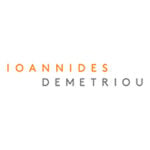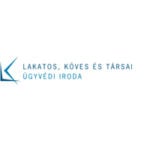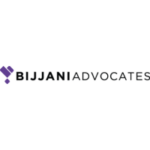-
What are the typical ownership structures for project companies in your jurisdiction? Does this vary based on the industry sector?
In Guinea, the most common ownership structures for project companies is established under Special Purpose Vehicles (SPVs). Even though the existing legislation provides for various forms of corporate entities (ranging from unlimited liability forms to limited liability form), the SPVs usually incorporated to run major projects are generally set up under the public limited company (société anonyme, or SA) in accordance with the OHADA Corporate Act (as defined below). This form of company comes with different characteristics and requirements to comply with. For instance, it allows the implementation of a board of directors where different governance issues are addressed.
These SPVs are usually directly owned by a holding company incorporated abroad which is in turn fully controlled by the investors/sponsors. Since project finance transactions are critical for the Guinean economy (most of the recent project finance transactions were in the energy, infrastructure and mining sector), the State is, most of the time, involved in the shareholding of SPVs, particularly in the mining sector. The mining Code provides that the Guinean States is entitled to up to fifteen percent (15%) non-dilutive free shares in certain mining companies. The State is to be freely granted those shares in certain mining companies.
This involvement of the State in the shareholding of SPVs is increasingly raising governance issues between the State and investors. In many projects the State seeks, through shareholders’ agreements, to get more rights, including veto rights to be exercised at the board of directors. It is very frequent to have the representatives of the State at the board acting as the chairman of the board of directors.
Although being the majority shareholder and main/sole financier of the project (through both equity and debt), the investors/sponsors will often have to negotiate and compromise with the State on certain corporate governance issues.
-
Are there any corporate governance laws or accounting practices that foreign investors in a project company should be aware of?
In Guinea, both corporate governance and accounting are regulated by the OHADA law. OHADA stands for Organisation pour l’Harmonisation en Afrique du Droit des Affaires (Organization for the Harmonization of Business Law in Africa). It is an organization formed by 17 African States that established a common set of business law regulations. Thus, certain areas of business law – including (without limitation) corporate law, accounting or bankruptcy and insolvency ‒ are regulated by OHADA law.
The OHADA Uniform Act relating to the law of commercial companies and economic interest groups (the “OHADA Corporate Act”) governs the organization, incorporation and governance of companies in Guinea, and provides for several forms of companies, ranging from unlimited liability forms to limited liability forms. In the context of project finance, project companies are usually organized and incorporated under limited liability forms. The public limited company (société anonyme, or SA) is the most common form. It is incorporated with a minimum share capital (currently approximately USD16,000 for an SA not listing its shares publicly). Contributions to the share capital of a public limited company may be made only in cash or in kind.
The corporate governance within the SA companies is mainly achieved through a board of directors and a CEO – although the OHADA Corporate Act provides for other types of governance. The appointment of an auditor is also mandatory for public limited companies. As regards shareholders, their liability for the company debts and liabilities is limited to their contribution to the share capital.
The Uniform Law on the Organization and Harmonization of Company Accounting establishes the general principles of accounting in Guinea. The first article of this law provides that all companies are required to set up accounting systems for the information of third parties as well as for their own use. It also outlines the accounting rules to be followed by companies incorporated under OHADA law.
-
If applicable, what forms of credit support from sponsors or host governments are typically provided?
In Guinea, project finance transactions remain financially backed by investors/sponsors with a combination of equity and debt financing. In connection therewith, there are several forms of credit support that might be used in project finance transactions.
For instance, it is possible to have comfort letters issued by the parent company to further support the project. Likewise, parent company guarantees have also been used in project finance transactions in Guinea to further support the project. Certain regional institutions, in particular regional banks, might also support the project through political risk guarantees for instance.
In certain specific projects, involving a State-Owned Entity (SOE), it is also possible to have a sovereign guarantee (mostly provided by the State by the State to the benefit of its SOE) involved in the transaction to further support the funding from lenders.
-
What types of security interests are available (and suitable) for a project financing in your jurisdiction? Are direct agreements used?
Security issues in the context of project finance are regulated by the Uniform OHADA Act relating to the organization of security (the “OHADA Security Act”). Pursuant to the OHADA Security Act, there are several types of assets (both movable and immovable assets) eligible as collateral in the context of project finance.
Please note that OHADA law does not provide for a floating charge or any similar universal security regime. Therefore, it is crucial for lenders to ensure that all security arrangements comply with the necessary conditions and formalities. While a pledge over a business as a going concern provides security over a combined set of assets, this should not be construed as a floating charge or universal security regime under common law.
Thus, when implementing security in the context of a project, each type of collateral falls within an OHADA-specific regime, which is subject to conditions of validity and enforceability, as follows:
Share pledge
It is common practice to pledge the shares of a project company to guarantee the financing of a project. By way of example, the shares of a mining company incorporated in Guinea for the development of a mining project are frequently pledged to guarantee the funding of the project. This would require a share pledge agreement that contains mandatory provisions, such as the designation of the lender, the debtor and the pledgor (if different from the debtor), the head office and corporate registration number of the company that issued the shares, elements that would allow identifying the number of pledged shares, and elements that would allow identifying the credit covered by the share pledge.
The aforementioned conditions and other formalities provided by the OHADA Security Act are mandatory requirements to validly implement a share pledge agreement. To become enforceable against third parties, a share pledge must be published in a specific register, the Trade and Personal Property Credit Register (Registre du Commerce et du Crédit Mobilier, or RCCM) held by the Tribunal of Commerce of Conakry (Republic of Guinea). The pledge can also be notified to the company that issued the shares.
Pledge of receivables and over bank accounts
The OHADA Security Act also allows the pledge of receivables and bank accounts. These pledges must also be implemented through a written pledge agreement that includes certain mandatory provisions such as details on the credit covered by the pledges and the identification of the receivables or bank account that are pledged. These pledges will also be published in the RCCM for enforceability purposes.
The OHADA Security Act also provides that the pledge of receivables must be notified to the debtor of the receivables in order to become enforceable against such debtor. Such debtor may also intervene in the pledge agreement, which would entail the same enforceability effect as the notification.
Pledge over a financial securities account
The pledge over a financial securities account is more flexible, with less formalities than the usual pledges often used in practice. This pledge is subject to a pledge statement (Declaration de Nantissement), which must also outline mandatory provisions for validity purposes. By way of example, the lenders, the debtor and the pledgor must be accurately identified. The number and characteristics of the financial securities must be provided. Once pledged, this ring-fenced account will be treated as a special account held by the issuer of the securities.
Unlike the usual pledges, the pledge over a financial securities account is not subject to registration in the RCCM for enforceability purposes. The enforcement of this pledge is also less complex. The enforcement is only subject to a prior notice (eight-day notice or any other delay agreed by the parties) to be served to the debtor and/or the account holder.
Assignment of receivables by way of security
The OHADA Security Act also provides for the assignment of receivables by way of security. This assignment of receivables (which differs from the Civil Code assignment of receivables scheme) is subject to a written agreement that must clearly designate the assignor and the assignee, the date of assignment, and the description of the guaranteed credit/facilities and assigned receivables.
This collateral becomes enforceable against third parties only after its registration in the RCCM. However, the assignment must be notified to the assigned debtor (or the assigned debtor shall intervene in the agreement) for enforceability purposes against such assigned debtor.
When the assigned debtor is a professional (whose debts result from its professional activities), the OHADA Security Act provides that such assigned debtor may ‒ at the request of the assignee/beneficiary – consent/acknowledge the assignment of receivables. Such consent must be materialized in a deed of consent executed by the assigned debtor. If such a consent is provided by the assigned debtor, the debtor would no longer be entitled to oppose the assignee, rights or legal recourses resulting from its relationship with the assignor. Such a consent is an additional comfort for the assignee/beneficiary, who would expect to receive from the assigned debtor a swift and uncontested payment.
Fiduciary assignment of cash
This form of security is less used in practice because of certain constraints associated with the mechanism. By way of example, the OHADA Security Act provides that the fiduciary (trust) agent who will hold the assigned cash must be a credit institution. This is likely to exclude certain entities.
Mortgages
Beyond the aforementioned security schemes, the OHADA Security Act also provides for mortgages, which is a form of security attached to immovable assets. The registration of mortgages differs from the registration process with the RCCM. In Guinea, mortgages are registered in the land registry for enforceability purposes.
Pledge over business as a going concern
It is to be noted that the OHADA Security Act provides for a security regime intended to cover a set of assets attached to a business. The pledge over business as a going concern is a particular security regime. Unlike the aforementioned security arrangements, this pledge is intended to cover a combined set of assets attached to a business. A pool of assets will be covered by the same pledge. The assets likely to fall within this pledge are usually the trade name, the leasehold rights, goodwill, or IP rights.
This pledge is subject to a written agreement that must include mandatory provisions, such as the assets covered by the pledge and the beneficiary of the pledge. This pledge must be registered in the RCCM. Although it covers a set of assets attached to a business, this pledge shall not be construed as a common-law floating charge.
Direct Agreement considerations
In civil law countries such as Guinea, “direct agreement” is usually established through contractual provisions that are often incorporated into concession or PPP agreements.
Direct agreements are not forbidden under Guinea law. In certain projects, such as energy projects, it is very common for the sponsors to insert provisions on direct agreements with the purpose of facilitating the financing.In light of the above, it is important to understand that each security has its own regime and conditions outlined in the OHADA Security Act. Generally speaking, almost all security interests are subject to the execution of certain formalities to ensure their validity. By way of example, it is often necessary to provide a written agreement (see, for instance, the share pledge or the assignment of receivables as security). The written agreement must also contain certain mandatory provisions. The assets provided as collateral must be accurately specified and identified in the relevant security document.
The registration of security in public registries is not per se a condition of validity of the security, but rather a condition of enforceability.
-
How are the above security interests perfected?
To be performed, collateral security interest must be registered, mainly for enforceability purposes. The registration date will also be relevant for the ranking among the lenders. The security interests over movable assets must be registered in the RCCM, whereas security over immovable rights must be published in the land registry.
Registration fees considerations:
– Cost of Registration in the RCCM
The registration cost depends on the class of asset and the nature of collateral security interest. There is a percentage grid based on the value of the guaranteed credit/facilities. Pursuant to the current cost grid in force, the movable security registration costs currently range between 1% and 0.12% of the guaranteed credit/facilities.
– Tax Registration and Fees
The General Tax Code provides for tax registration and fees for certain security arrangements. Nonetheless, it should be noted that the scope and nature of security subject to tax registration and fees are not accurately outlined in the General Tax Code. Therefore, the tax registration and associated fees for security are likely to raise debates in practice. Certain projects might, however, benefit from tax exemptions to avoid the aforementioned issue. Such tax exemptions shall be duly provided in the relevant project document and ratified by the National Assembly.
It is very common to have certain project finance transactions exempted from registration costs and taxes. By way of example, when negotiating certain mining transactions, mining projects could be exempted from certain costs and taxes related to the financing of the project. As those mining conventions are ratified by the National Assembly, it grants them the force of a law that validly exempts them from the existing tax and registration costs.
Notary Fees Consideration
Furthermore, notary fees are to be considered for certain forms of security. Mortgages are always subject to notary procedures (from creation to perfection), which would involve notary fees. The above-mentioned exemptions would not apply to notary procedures.
-
Please identify how security is enforced (notably the enforcement options available for secured parties) both pre and post insolvency/bankruptcy of the project company?
Pre-Insolvency/bankruptcy of the company:
In the event of default or failure to comply with any other specific conditions provided for in the agreement, the secured lender may enforce its security in accordance with the agreed provisions and the regulations in force. In addition to the OHADA Security Act, security enforcement is also regulated by the OHADA Uniform Act on Simplified Debt Recovery and Enforcement Procedures (L’Acte Uniforme portant organisation des Procédures Simplifiées de Recouvrement et des Voies d’Exécution, or AUPSRVE), which was revised on 16 October 2023.
There are several methods of enforcing security, depending on the type of security. After unsuccessful formal notices and precautionary seizures, the creditor may obtain payment by contractual (in accordance with the provisions of the agreement) and/or judicial enforcement. The enforcement generally takes the form of a sale of the secured assets, usually through auction under the control of the judicial system. The creditor is to be paid from the sale price. The value and price of the assets will result from the best offer during the auction.
A creditor/lender may also request from the tribunal a judicial order that attributes the assets as payment of the debt up to the value of the debt. In such a case, the assets would be valued according to the market price or based on an expert assessment.
For certain specific assets (e.g., cash, or assets having an official value listed on a market), parties are permitted to agree in advance (via a provision in the contract) that the asset will be awarded to the creditor/lender in the event of default of the debtor.
When the value of an asset attributed to the creditor/lender exceeds the value of the debt, the creditor/lender must put in escrow an amount representing the excess. This amount will benefit other creditors/lenders or will be reimbursed to the pledgor.
In the event of several registrations on the same asset, care should be taken as to the order of registration and the ranking among the lenders.
Post insolvency/bankruptcy of the project company:
The OHADA Act relating to the organization of collective insolvency proceedings (the “OHADA Bankruptcy Act”) provides four insolvency procedures:
- conciliation proceeding (la conciliaton) ;
- preventive settlement (le règlement preventif) ;
- the judicial receivership proceeding (le redressement), and
- liquidation proceeding (la liquidation).
The conciliation and preventive settlement are preventive/pre-insolvency measures. They are used when a debtor faces difficulties, likely to put it in default regarding its due and payable obligations (debts). The purpose of these preventive procedures is to implement measures to avoid defaults and ensure that the debtor will overcome any economic and financial distress.
The judicial receivership and liquidation procedures intervene when a debtor is already in default and is no longer able to face its due and payable debt on time. These collective procedures will involve all lenders (secured and unsecured) and may result in a liquidation of the debtor’s assets if the judicial receivership does not allow the debtor to clean up its liabilities and ensure its survival.
If the restructuring fails, the liquidation will be used for the disposal of the debtor’s assets and the settlement of outstanding obligations (debts), considering the following:
Priority of creditors
In organizing the priority among creditors in the context of a liquidation of the debtor assets, there are different factors to be considered ‒ in particular, the creditors’ involvement and compromise during the conciliation, preventive settlement and judicial receivership steps.
In fact, there are two types of creditors:
- the creditors that pre-date the petition and opening of a conciliation, preventive settlement and receivership; and
- the creditors that agreed to give some relief and extension under the terms and conditions of the insolvency procedures. These creditors post-date the insolvency procedures.
Pursuant to the Insolvency Code, the creditors that agreed to participate in one of the insolvency proceedings and provided new credits or agreed to provide new goods and services to facilitate the survival of the debtor’s activities would be granted with a privilege (“new money privilege”). The new money privilege is an advantage in terms of ranking that is granted to creditors who agreed to take risk and provide additional support in the interest of the survival of the activities.
For the distribution of both movable and immovable assets value after liquidation, the creditors with new money privilege always rank first.
Immovable assets
In the context of payment of creditors following the liquidation of immovable assets, the secured lenders (creditors with a duly registered mortgage) would rank fourth after:
- creditors with new money privilege;
- creditors who incurred court costs that arose for the purpose of the liquidation of the asset and the distribution of the value; and
- employees’ super-privilege (wages and remuneration owed to employees) in proportion to the value of the immovable.
The unsecured creditors will rank at the end (i.e., eighth or ninth).
Movable Assets
In the context of the payment of creditors following the liquidation of movable assets, the secured lenders (such as lenders with pledges or a pledge over bank account or assignment of receivables) would rank fifth after:
- creditors with new money privilege;
- creditors who incurred court costs that arose for the purpose of the liquidation of the asset and the distribution of the value;
- creditors who incurred costs for the preservation of the movable asset in the interest of a creditor with older rights; and
- employees’ super-privilege (wages and remuneration owed to employees).
Unsecured creditors will rank at the end (i.e., ninth and tenth).
-
What are other important considerations in relation to the security regime in the jurisdiction that secured parties should be aware of?
In addition to the above-mentioned issues related to security regime, secured parties shall also consider the following regarding Guinean legislation on the security regime:
Security Agent and Trust Concepts
The OHADA law did not implement a trust mechanism similar to the common law trust concept. However, the OHADA Security Act provided for a security agent regime. Such a security agent concept is particularly relevant in the context of syndicated financing of projects. The security agent will be appointed by the lenders through an act that must contain certain mandatory provisions. The security agent would act in its name and capacity as a security agent for the benefit of all lenders. However, under the OHADA Security Act, only financial institutions or credit institutions are entitled to act as security agents. The security agent concept is not a security arrangement. The security agent concept involves a third party acting in its name and capacity as a security agent for the benefit of all lenders.
In major project finance transactions that involve foreign lenders, it is very common to have Guinean subsidiaries of foreign lenders acting as security agent.
In addition to the security agent concept, one may also mention the fiduciary assignment of cash mechanism, which will result in a sort of trust mechanism (without being clearly qualified as a trust). The OHADA Security Act provides for the fiduciary assignment of cash, which requires the cash to be held in a blocked account. However, the OHADA Security Act clearly provides that the blocked account must be in the book of a credit institution who will act as fiduciary agent.
Competing Security Interests and assignment of priority
The priority and ranking of lenders are essentially addressed through the formalities to be achieved in filing each security interest in the RCCM or land registry. The priority of competing security interests would then be resolved by the ranking, as it results from the relevant registry – notably, the RCCM in the case of movable assets.
The law does not restrict contractual subordination arrangements between lenders. Certain provisions of the OHADA Security Act refer to such subordination arrangements that might be implemented by lenders. By way of example, the law refers to the contractual subrogation mechanism (subrogation conventionnelle) or the assignment of priority (cession d’antériorité).
It should also be noted that the OHADA Security Act acknowledges the assignment of priority (cession d’antériorité) for security over immovable rights (mortgages).
In practice however, subordination arrangements regarding the priority of competing security interests are not very common considering the recent project finance transactions completed in Guinea.Renewal of registration
With regard to the enforceability of the security, it is essential to ensure a monitoring of a security over its duration ‒ in particular, to ensure the registration renewal on time. The registration of a security is subject to expiration after a certain delay. Registrations under OHADA law expire after ten years from the date of the first registration in the case of movable securities and in the case of mortgages with a fixed term, after 30 years. Such registrations shall be renewed, if necessary, before the expiry of these periods.
-
What key project risks should lenders be aware of in project financings in your jurisdiction? This may include, but may not be limited to, the following risks: force majeure, political risk, currency convertibility risk, regulating or permitting risk, construction/completion risk, supply or feed stock risk or legal and regulatory risk).
Project finance transactions in Guinea face the traditional risk generally associated with project finance, such as force majeure, macroeconomic market risks, change in laws, etc. In addition, in light of recent and ongoing political crisis following a military coup that occurred on 5 September 2021, the political risks are also a major issue to consider. This political risk is often associated with legal and regulatory risk, in particular when existing conventions are to be reopened.
In addition, it is to be noted that when borrowers, security providers or guarantors become insolvent, it raises several risks to be considered by lenders. The risk varies depending on the seriousness of the economic and financial distress that a debtor is facing. In the event the debtor is facing economic and financial distress without being in default, one may anticipate that lenders are likely to have their risk exposure decreased through reasonable preventive measures (conciliation or preventive settlement as explained above).
Generally speaking, lenders may face the following risks:
- extension of the debt repayment delay;
- restrictions from using contractual rights or judicial rights;
- inefficiency of security likely to be blocked by an insolvency process under the supervision of a judge;
- changes in the payment ranking and security of lenders over certain assets pledged as collateral; and
- decrease of the value of the debtor’s assets.
It is crucial for lenders to perform thorough due diligence on borrowers and projects prior to any investment and ensure an ongoing monitoring of their exposure throughout the lifetime of the credit.
-
Are any governmental / regulatory consents required and are any financing or project documents requirement to be filed with any authority in order to be admissible in evidence in a court of law, valid or enforceable?
The most important project finance documents that are subject to filing and registration in the context of project finance transactions are the security documents. Registration with tax authorities is a key element to address in the context of project finance negotiation. In practice, tax filing issues are often negotiated and addressed within the tax regime clause of the convention to be executed with the Guinean State.
Beyond the filing with tax authorities, the registration of security documents in the RCCM (in particular, for security over movable assets) is a key step to perform and secure for any creditor/lender. This registration is critical for enforcement and ranking purposes. The same registration at the land registry is critical for security over immovable assets (mortgages).
It should also be noted that certain conventions signed with the Guinean State (such as mining conventions) are subject to a legislative ratification process at the National Assembly followed by a publication in the Official Journal of the Republic to enter into force and become enforceable.
-
Are there are any specific foreign exchange, royalties, export restrictions, subsidies, foreign investment, that are relevant for project financings (particularly in the natural resources sectors)?
The following issues related to foreign exchange shall be considered in the context of project finance transactions:
Restrictions on Payments Abroad or Repatriation of Capital
The Republic of Guinea has implemented a regulatory framework governing payments abroad and the repatriation of capital, as well as payments in both foreign currency or Guinean currency. By way of example, there is a restriction on payments made between two entities incorporated in Guinea for goods and services rendered within the country. Payments for such goods and services cannot be made in foreign currency. Such transactions shall instead be completed in Guinean francs. This is particularly relevant for Guinean subsidiaries of foreign investors.
Likewise, repatriation of dividends and the ability to make payments abroad for foreign workers’ wages are also key elements negotiated in the project documents of any project. These issues are usually strongly negotiated with the Guinean State in the context of project finance transactions to ensure that clear provisions on these issues are ratified by the National Assembly while ratifying conventions. These crucial issues are typically requirements from investors and are outlined in the relevant project documents.
Foreign exchanges issues, in general, tend to be addressed within project documents – often subject to ratification by the National Assembly.
Offshore Foreign Currency Accounts
The opening of offshore foreign currency accounts by a project company incorporated in the Republic of Guinea is strictly regulated by the Guinean Central Bank. Pursuant to Instruction No 112/DGAEM/RCH/00, the opening of an offshore foreign currency account by a company incorporated in Guinea is subject to the prior consent of the Central Bank of the Republic of Guinea.
In practice, sponsors seek exemptions to such restrictions and require the provision of such exemptions to be inserted in the relevant conventions that they execute with the Guinean State.
-
Please set out any specific environmental, social and governance issues that are relevant. For example, are project companies subject to certain ESG laws, reporting requirements or regulations?
Guinea has a strict environmental legislation intended to mitigate the social and environmental impact of structural projects to be implemented in the country. As a developing country, all recent projects implemented under a project finance scheme involve major social and environmental consequences. Both energy and mining projects for instance would involve population relocation, land clearing and massive construction works.
To mitigate the social and environmental consequences, the Environmental Code provides for certain measures. For instance, the majority of projects are required to provide Social and Environmental Impact Studies prior to the launch of the project. Those studies shall be followed by a Social and Environmental Management Plan. The purpose of such a plan is to outline measures intended to mitigate negative impacts on the environment and for local communities for instance. The Mining Code further requires a Health and Safety Plan as well as a Resettlement Plan (for the population affected by the mining project) to be provided.
It is to be noted that the Ministry of Environment frequently issues Environmental Compliance Certificates which are highly needed for the progress of the project.
-
Has any public-private partnership models or laws been enacted in the jurisdiction, and if so, are they specific to certain industry sectors?
Guinea enacted Act L/2017/0032/AN of 4 July 2017 on Public Private Partnerships, promulgated by Decree No D/2017/278/PRG/SGG of 24 October 2017 (the “PPP Law”).
PPP encompasses different forms of agreement, but it may be construed as long-term agreements entered between a public entity – in particular, the State or a local authority – and a private entity to carry out missions and services through the design, financing, construction and operation of infrastructure. The PPP Law provides that a PPP agreement is set for a determined period and the remuneration of the private entity is substantially linked to the operation of the service or mission. In practice, a lot of infrastructure projects (e.g. port or airport projects) are realized through long-term concession agreements in accordance with the PPP Law. The private entity in charge of such a concession agreement is generally entitled to get paid through royalties levied on the users of the infrastructure.
The PPP Law has established a large scope that is likely to include all projects to be implemented in Guinea. The PPP Law expressly excludes from its scope the mining and oil sectors governed by the Mining Code and the Petroleum Code. In practice, the following industries and projects are negotiated and executed under the guise of the PPP Law:
- the energy sector (e.g. building and operating dam or solar power plant projects);
- port projects (e.g. building and operating ports);
- transportation (e.g. building and operating airport);
- mining infrastructure (the infrastructure built for the extraction of mining assets are governed by the PPP Law); and
- the health sector (e.g. building and operating hospitals).
Some of the aforementioned sectors also have their specific legislation to be considered while performing projects within those sectors.
-
Will foreign judgments, arbitration awards and contractual agreements to arbitrate be upheld?
Yes. Judgments from foreign courts or foreign arbitral awards are enforceable without retrial of the merit before Guinean courts, provided that such judgment and arbitral award comply with certain formalities and procedure to be admitted within the Guinean jurisdiction. There is an exequatur procedure to follow in order to become enforceable in Guinea.
The judgment from the foreign court or the foreign arbitral award must be a final decision enforceable in such a foreign jurisdiction. The foreign judgment or award must not constitute a violation of Guinean public order.
However, in the context of project finance transactions, many projects are structured either under the PPP Law or the Mining Code. The PPP Law clearly provides that agreements under PPP Law shall be governed by Guinean law. This would, for instance, apply to port or railway projects. As regards the Mining Code, the mining conventions entered into between the Republic of Guinea and mining investors under the existing Mining Code are governed by Guinean laws.
-
Is submission to a foreign jurisdiction and waiver of immunity effective and enforceable?
Yes. The submission to a foreign jurisdiction and the waiver of immunity are effective and enforceable under Guinean law. It is very common in project finance transaction to negotiate foreign jurisdiction (or arbitration) and waiver of immunity clauses with the Guinean State. The project documents to be ratified by the National Assembly usually contain such provisions.
-
Please identify what you consider to be (a) the key current issues for project financing in your jurisdiction; and (b) any emerging trends or topics which should be considered or focused on by project financing stakeholders in this jurisdiction.
When conducting projects, there are some relevant legal issues and aspects to consider that are governed by Guinean law. In addition to the other issues addressed herein, the following issues increasingly appear to be key in project finance transactions and should therefore be considered:
- During the lifetime of a project (energy, mining, infrastructure, etc.) there are some licensing, regulatory and compliance matters that are strictly governed by Guinean law.
- Local content requirements are strictly regulated and crucial in ensuring the success of projects. Guinean authorities pay close attention to respect for local content laws. Through the Act L/2022/0010/CNT dated 22 September 2022, the Republic of Guinea enacted a local content law intended to ensure the involvement of Guineans and Guinean interests in all strategic projects in the country.
- Involvement of the State in the governance of project companies seems to be an emerging trend. In all recent project finance transactions where the State intervene as a minority shareholder, it has been noticed that the State seeks more involvement in corporate governance of project companies. For instance, the State is frequently asking for the execution of a shareholders’ agreement with the purpose to secure more rights at the board of directors level.
-
Please identify in your jurisdiction what key legislation, subsidy regimes or regulations have been implemented (or will / plan to be) for projects in connection with the energy transition and/or specific projects due to energy security?
considerations in connection with the energy transition
In the aftermath of the COP29 held in Baku (Azerbaijan) in November 2024, certain climate finance issues, such as Carbon Credit issues are increasingly being discussed within the Guinean administration. In light of the high environmental impact associated with the recent mining and energy projects in Guinea, the Carbon Credit approach appears as a positive measure in mitigating the consequences.
The Ministry of Environment has organized and held different forums and discussions around the regulation of Carbon Credit in Guinea. It is therefore likely to have Carbon Credit legislation being enacted in the future.
considerations in connection with the energy security
It should also be noted that in 2025, Guinea formulated a National Energy Pact.
The pact aimed to accelerate the implementation of programs to increase access to electricity and clean cooking, with the goal of reaching 100% and 35% respectively by 2030. It also aimed to significantly increase electricity production capacity from renewable sources to 70% by 2030.
The private sector is expected to play a pivotal role in achieving these goals, with the aim of attracting around US$7.6 billion in private investment for energy production, transmission and distribution, as well as decentralized renewable energy (DRE) and clean cooking solutions.
To ensure the pact’s success, the Guinean government has identified the following pillars of support:
- Pillar I: Develop production infrastructure and the electricity grid at competitive costs.
- Pillar II: Take advantage of the expansion of the mining sector and promote interconnection with other countries in the region.
- Pillar III: Adopt RSE and clean cooking solutions to provide affordable access to the last mile.
- Pillar IV: Encourage private sector participation to mobilize additional resources.
- Pillar V: Ensure a financially viable national electricity company that provides reliable and affordable services.
-
Please identify if there are any material tax considerations which need to be taken into account for a project financing in your jurisdiction, and if so, how such tax issues can be mitigated.
Generally speaking, tax issues in project finance transactions are negotiated with the State and addressed within the project documents. Those tax clauses usually provide for the agreed tax exemption and tax advantages related to the project. In addition to such tax provisions in project documents, there are other general tax issues to be considered during the lifetime of a project:
Withholding tax: The Guinean General Tax Code provides for a withholding tax on investment incomes. This withholding tax would apply on interest payable to lenders. The current withholding tax rate is set at 15%.
Other Taxes and Charges: There are tax filing issues to be considered for a lender ‒ although such tax filings can be addressed through the tax regime of the relevant project document. The Guinean General Tax Code also provides for a tax on financial activities, which is mainly relevant for Guinean regulated credit institutions and foreign exchange entities.
-
What types of funding structures (e.g. debt, equity or alternative financing) are typical for project financing in your jurisdiction. For example, are project bond issuances, Islamic finance and – in the context of mining deals – streams or royalties, seen as attractive (and common) options for stakeholders? Are you seeing private credit in project financing in your jurisdiction or other alternative financiers? If so, what types of projects are they looking to finance and what are the key structuring issues of such financings?
In many projects, the funding is one of the critical issues discussed between the State and the investor. For instance, the gearing ratio (debt to equity ratio) is sometimes raised by the Guinean State as part of the negotiation with investors/sponsors.
Project financing in Guinea mainly and frequently involves equity from sponsors and debt from lenders. The debt side is, however, supported by sponsors. As such, the most recent project financings have involved foreign banks providing the financing, mainly through a debt syndication mechanism. Both commercial and development banks are often involved in financing large projects in Guinea (energy, infrastructure, natural resources, etc.). For example, the African Development Bank and the World Bank have been involved in recent mining and energy projects in Guinea. International commercial banks such as Société Générale or First Abu Dhabi Bank have also been involved in financing strategic projects in Guinea.
Although they are not frequently used in project finance transactions in Guinea, alternative funding structures, such as project bonds and Islamic financing are likely to contribute further in the funding structure of upcoming projects in Guinea. The involvement of new investors in the projects in Guinea, in particular those coming from the Middle East could promote the recourse to alternative funding structures.
-
Please explain if there are any regional development banks or export credit agencies, and if so, what is their role in project financing in your jurisdiction and beyond.
Both commercial and development banks are often involved in the financing of major projects in Guinea (energy, infrastructure, natural resources, etc.). With regards to regional and multilateral banks, it is to be noted that the African Development Bank is still playing a crucial role in the financing and support of project finance transactions in Guinea. The African Export and Import Bank (Afreximbank) also contributes to certain structural and strategic financing. The African Development Bank has a funding branch dedicated to the funding of infrastructure project in Africa, Africa 50. Africa 50 has financially supported many airport and other infrastructure projects in Guinea and Africa in general. The African Development Bank is often involved in debt syndication structures dedicated to projects in Guinea.
With regards to international multilateral banks, the World Bank and the US International Development Finance Corporation (DFC) are frequently involved in the financing of strategic mining and energy projects in Guinea.
One may also notice that export credit agencies and credit enhancement institutions are also often involved in the financing of projects in Guinea. By way of example, the China Export and Credit Insurance Corporation, SINOSURE, has followed several projects sponsored by Chinese investors in Guinea.
-
Please explain if there are any important insurance law principles or considerations in connection with any project financing in your jurisdiction.
In Guinea, the Insurance Code must be considered in all project finance transactions. Such Insurance Code provides for certain restrictions and controls to be addressed when negotiating and implementing project documents.
By way of example, the Insurance Code provides that “covered assets and risks that are incorporated or located in Guinea shall be insured only by insurance companies duly licensed in the Republic of Guinea”. Such a restriction would, for instance, prevent project companies from using any foreign insurance to cover the risk surrounding the construction of certain infrastructure in Guinea.
Likewise, the Insurance Code also provides that ‒ unless there is an express exemption from the regulating authorities ‒ insurances policies subscribed to for entities located in Guinea must be denominated in Guinean currency. It should be noted that insurance companies in Guinea are regulated by the Central Bank of the Republic of Guinea.
All those restrictions provided by the Insurance Code must be discussed and addressed during the negotiation of relevant project documents.
-
Please explain if there are any issues with entering into any hedging arrangements in this jurisdiction.
Guinea’s legal framework for public-private partnerships (Law No. 2017-32) and associated decrees do not expressly prohibit risk management hedging arrangements, such as foreign exchange forwards, swaps, options or other derivatives, in PPP contracts. As PPP contracts are governed by Guinean law, the parties involved are free to structure their contracts as they wish, provided they comply with the relevant legal and regulatory requirements, in particular public order provisions. It is therefore very coming to consider hedging mechanism while structuring the funding of major projects in Guinea. These hedging arrangements are mainly structured and governed under foreign law (such as French laws) except when it is mandatory to have certain instrument to be governed by Guinea/OHADA Law.
However, it is important to bear in mind that any financial transaction involving foreign exchange or derivatives may be subject to foreign exchange regulations and the supervision of the Banque Centrale de la République de Guinée (BCRG).
Guinea: Project Finance
This country-specific Q&A provides an overview of Project Finance laws and regulations applicable in Guinea.
-
What are the typical ownership structures for project companies in your jurisdiction? Does this vary based on the industry sector?
-
Are there any corporate governance laws or accounting practices that foreign investors in a project company should be aware of?
-
If applicable, what forms of credit support from sponsors or host governments are typically provided?
-
What types of security interests are available (and suitable) for a project financing in your jurisdiction? Are direct agreements used?
-
How are the above security interests perfected?
-
Please identify how security is enforced (notably the enforcement options available for secured parties) both pre and post insolvency/bankruptcy of the project company?
-
What are other important considerations in relation to the security regime in the jurisdiction that secured parties should be aware of?
-
What key project risks should lenders be aware of in project financings in your jurisdiction? This may include, but may not be limited to, the following risks: force majeure, political risk, currency convertibility risk, regulating or permitting risk, construction/completion risk, supply or feed stock risk or legal and regulatory risk).
-
Are any governmental / regulatory consents required and are any financing or project documents requirement to be filed with any authority in order to be admissible in evidence in a court of law, valid or enforceable?
-
Are there are any specific foreign exchange, royalties, export restrictions, subsidies, foreign investment, that are relevant for project financings (particularly in the natural resources sectors)?
-
Please set out any specific environmental, social and governance issues that are relevant. For example, are project companies subject to certain ESG laws, reporting requirements or regulations?
-
Has any public-private partnership models or laws been enacted in the jurisdiction, and if so, are they specific to certain industry sectors?
-
Will foreign judgments, arbitration awards and contractual agreements to arbitrate be upheld?
-
Is submission to a foreign jurisdiction and waiver of immunity effective and enforceable?
-
Please identify what you consider to be (a) the key current issues for project financing in your jurisdiction; and (b) any emerging trends or topics which should be considered or focused on by project financing stakeholders in this jurisdiction.
-
Please identify in your jurisdiction what key legislation, subsidy regimes or regulations have been implemented (or will / plan to be) for projects in connection with the energy transition and/or specific projects due to energy security?
-
Please identify if there are any material tax considerations which need to be taken into account for a project financing in your jurisdiction, and if so, how such tax issues can be mitigated.
-
What types of funding structures (e.g. debt, equity or alternative financing) are typical for project financing in your jurisdiction. For example, are project bond issuances, Islamic finance and – in the context of mining deals – streams or royalties, seen as attractive (and common) options for stakeholders? Are you seeing private credit in project financing in your jurisdiction or other alternative financiers? If so, what types of projects are they looking to finance and what are the key structuring issues of such financings?
-
Please explain if there are any regional development banks or export credit agencies, and if so, what is their role in project financing in your jurisdiction and beyond.
-
Please explain if there are any important insurance law principles or considerations in connection with any project financing in your jurisdiction.
-
Please explain if there are any issues with entering into any hedging arrangements in this jurisdiction.














